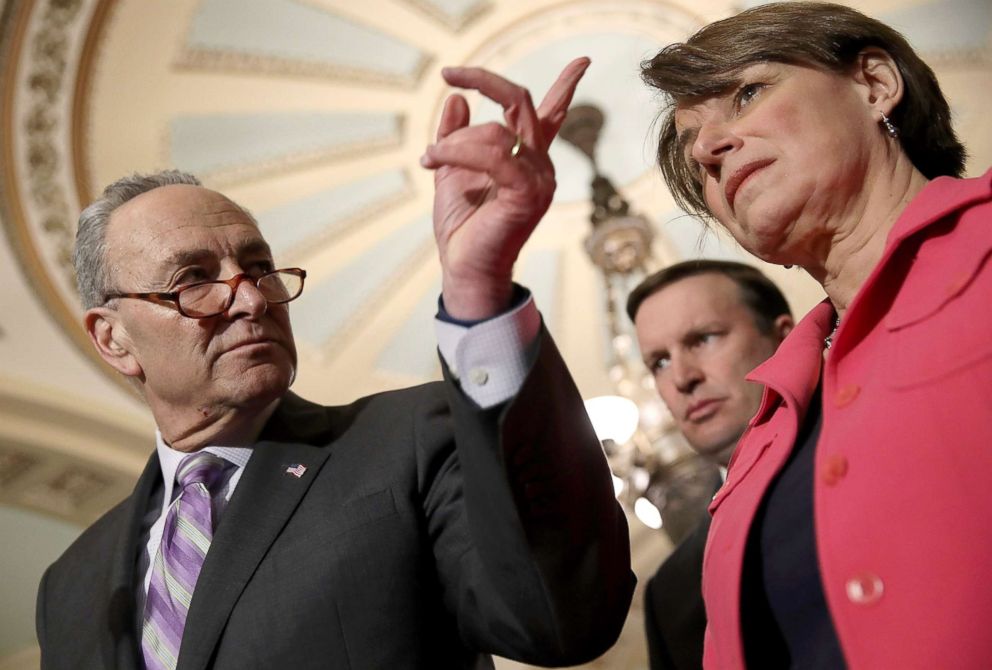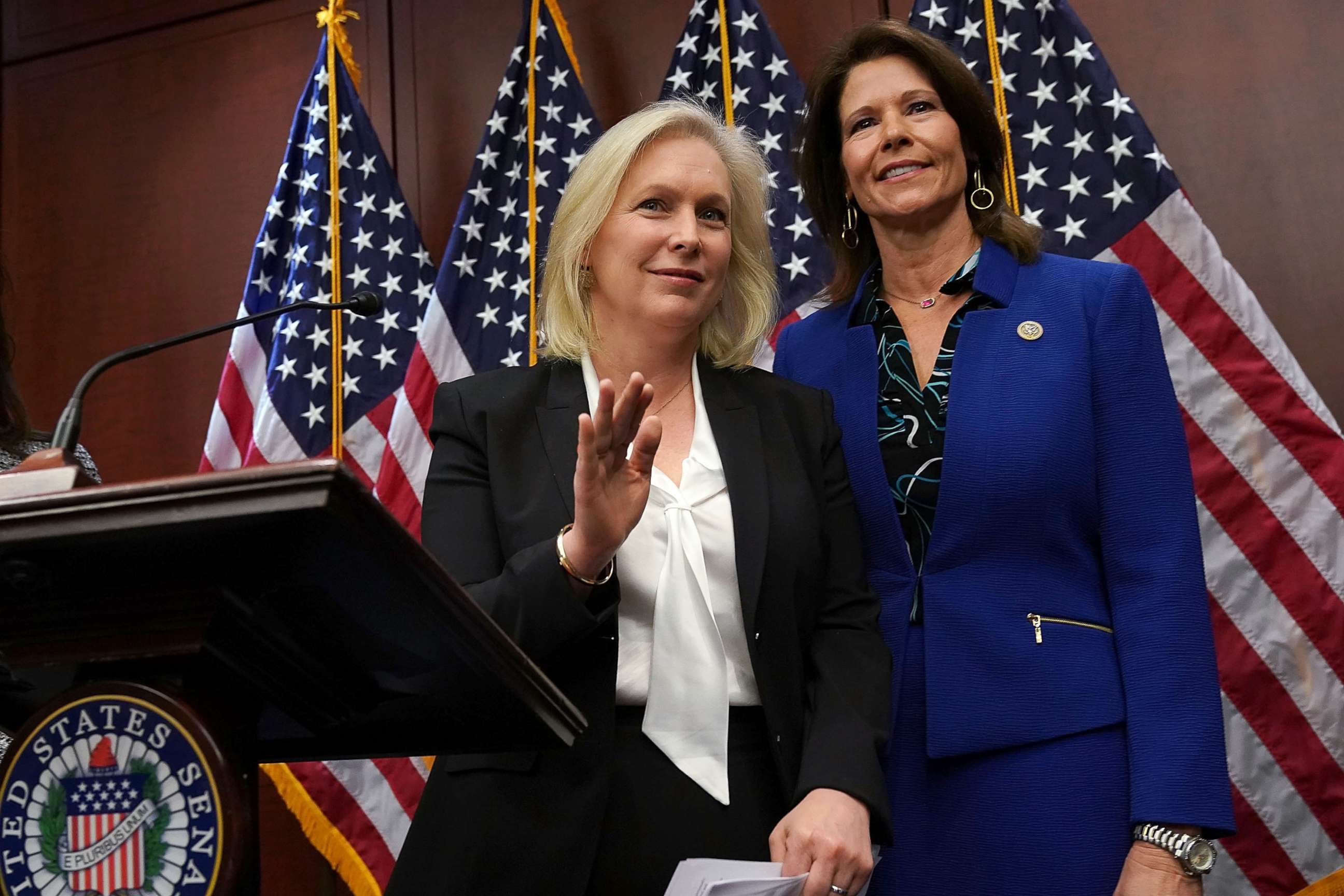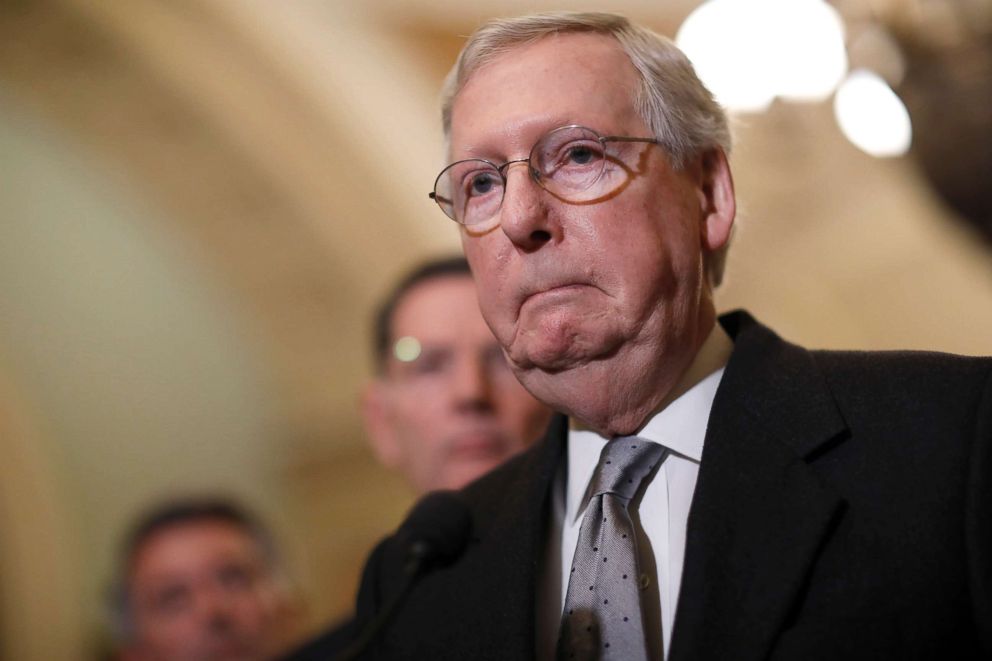All 22 women in Senate blast leaders over 'inaction' on sexual harassment in Congress
The senators are upset that changes were dropped from a spending bill.
All 22 women in the United States Senate fired off a letter Wednesday morning expressing their “deep disappointment” that the Senate has failed to act on legislation that would update and strengthen options available to victims of sexual harassment in congressional workplaces.
“Everyone deserves to work in an environment free from harassment and discrimination,” the senators wrote in their letter directed to the top Republican in the Senate, Mitch McConnell, and the top Democrat, Chuck Schumer.
The letter was spearheaded by Democratic Sens. Amy Klobuchar, Kirsten Gillibrand and Patty Murray and was signed by every female U.S. senator.
“Survivors who have bravely come forward to share their stories have brought to light just how widespread harassment and discrimination continue to be throughout Capitol Hill. No longer can we allow the perpetrators of these crimes to hide behind a 23-year-old law. It’s time to rewrite the Congressional Accountability Act and update the process through which survivors seek justice,” the senators wrote.

The senators are urging for meaningful reforms to what they say is an antiquated dispute resolution process, which became law under the Congressional Accountability Act in 1995. The process involves a month-long counseling session, forced mediation and a 30-day “cooling off” period – all of this taking place before a victim can make a decision whether to pursue further action either in a courtroom or within the administrative process.
Negotiators came close to attaching a bipartisan, bicameral deal to the government spending package last week but the legislation stalled due to a dispute over House-passed language that would hold lawmakers personally liable for discrimination settlements that they personally commit.

“I am appalled that House and Senate leadership removed provisions from the omnibus bill at the last minute that would have finally brought accountability and transparency to Congress’s sexual harassment reporting process. It begs the question: Who are they trying to protect?” Gillibrand said in a statement last week.
In response to Wednesday's letter, Schumer told ABC News in a statement: "We strongly agree that the Senate should quickly take up legislation to combat sexual harassment on Capitol Hill."
David Popp, a spokesman for McConnell, said the majority leader backs legislation that would hold members personally and financially liable for sexual misconduct in which they have engaged, but as of now, there's no telling when the legislation will come up for a vote on the Senate floor.

"There is a bipartisan group that is continuing to work on legislation. I don't yet have a prediction on when that will be completed," Popp said in a statement to ABC News.
While the Senate’s plans to tackle sexual harassment on Capitol Hill are at a standstill, the House passed bipartisan CAA reform legislation in February. The House bill eliminates the “cooling off” period that victims are forced to endure, increases transparency for awards and settlements, and requires members of Congress to pay for an award or settlement stemming from a case of sexual harassment or discrimination that they personally commit.
“Inaction is unacceptable when a survey shows that four out of 10 women congressional staffers believe that sexual harassment is a problem on Capitol Hill and one out of six women in the same survey responded that they have been the survivors of sexual harassment,” the senators wrote.




